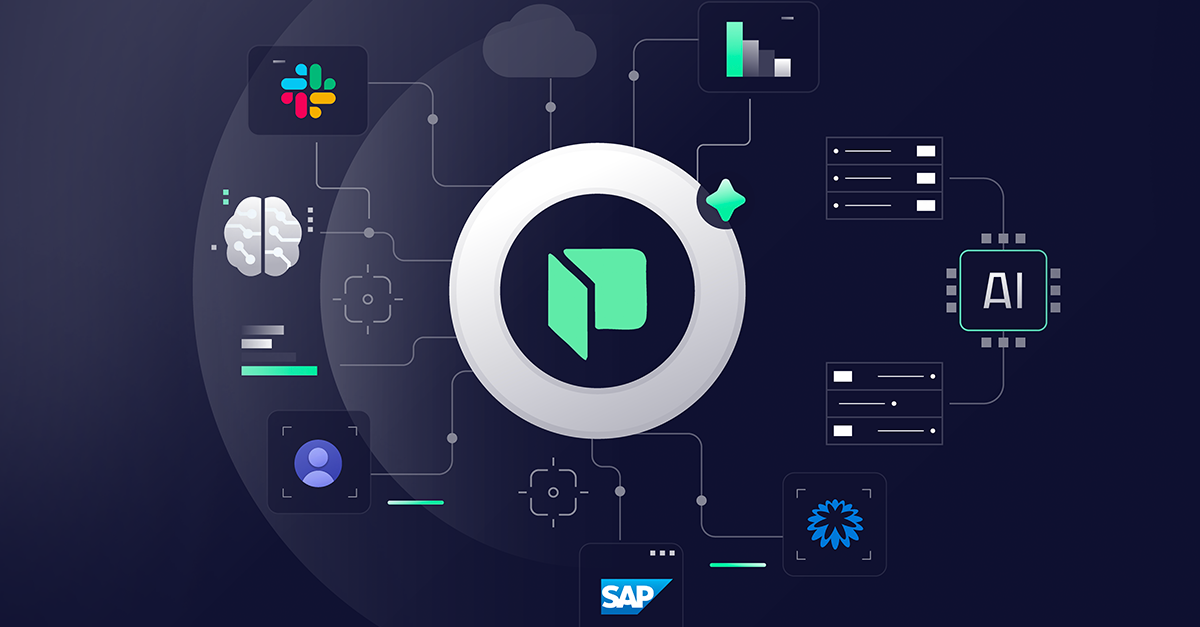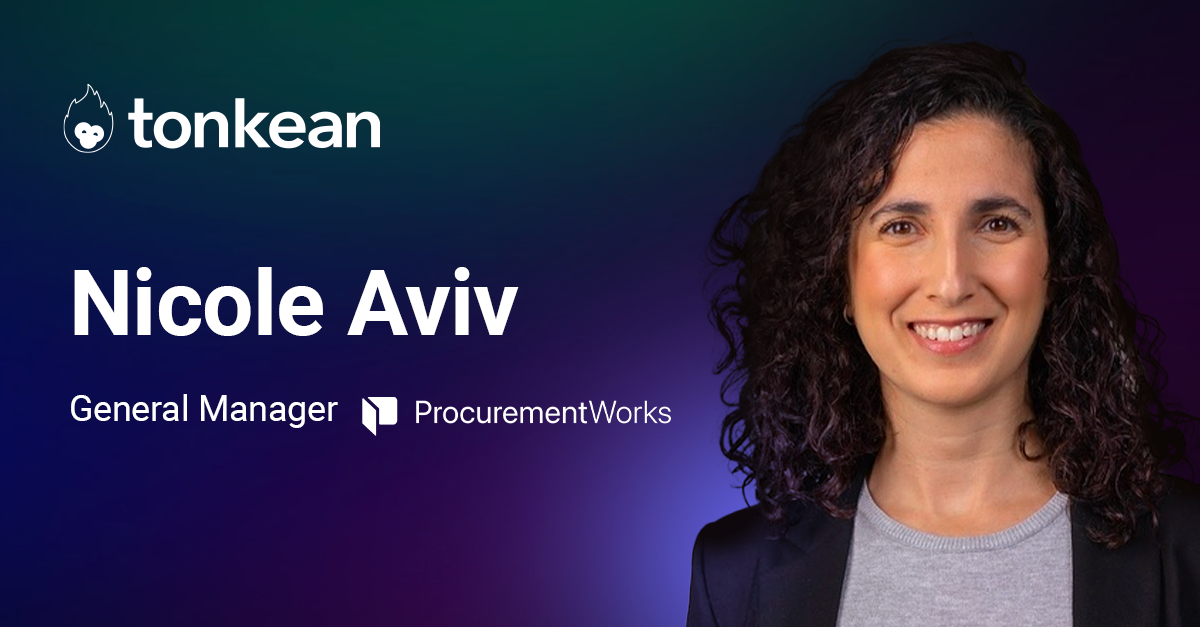
Originally published: 07/19/23
Last updated: 03/6/25
The workflow automation space has advanced wildly over the last few years. Workflow automation today comes in many forms and with varying degrees of sophistication, accessibility, and flexibility.
Automation, generally, should reduce or minimize human input, effort, assistance, or intervention. It should make work easier and faster, and it should reduce the need for manual work. Increasingly, this involves the use of AI. (See Tonkean Agentic Orchestration for the most powerful example of what kind of AI-powered process automation is out there these days.)
Understanding the distinctions between automation types—from task automation to workflow automation all the way to cross-departmental process and agentic orchestration—is critical for organizations aiming to improve their internal operations.
Workflow automation is the process of automating actions that follow the same logic and that are conducted in conjunction with one another.
Fundamentally, to get started automating workflows, all you need is technology that can execute when/do commands; that is, when a particular thing happens, it needs to do something specific.
Some automation tools require deep technical expertise. A lot of the technology, however, is low-code or no-code software, which typically offers graphical user interfaces and drag-and-drop features that allow users to create automations they need without relying on IT or dev teams to do much, if anything.
Still, not all automation tools are created equal. Task automation, for example, is nice for individuals who want to automate individual tasks. It’s not powerful enough, however, for teams hoping to make concrete gains in efficiency and performance, or meaningfully improve the process experiences they provide employees. On the other end of the spectrum, there’s process orchestration and agentic orchestration, with which organizations can not only automate complex processes across departments and systems, but enlist AI agents to work autonomously to achieve goals and carry out work initiatives on your behalf ongoing.
.jpg)
Sometimes, automating a "workflow" is really just about filling out forms.
But workflow automation is really more about a slightly bigger picture—not just automating individual tasks within the workflow, but the entirety of the workflow. At least, that's when it begins to return real value.
Because workflows in most organizations involve multiple people, teams, or departments, workflow automation also includes notifying or pulling in the right people at the right times. For example, if you need to execute a contract, the workflow may include:
That's what makes workflow automation so valuable of an investment, in particular for functions such as legal and procurement, and in particular if the workflow automation solution in question is infused with AI, or can help you facilitate true process orchestration (more on that below).
Speaking of which, where does workflow automation fit into the larger landscape of SaaS automation?
Some software vendors will claim the mantle of workflow automation, even though what they're automating is not very complex, and really falls more into the category of task automation, or is focused purely on forms, as opposed to true workflow automation.
It pays to know the difference, in particular if you're in legal or procurement, and you're shopping for automation solutions now.
The preponderance of platforms and tools available to us today fragments our working lives. In procurement’s case, as an example, processes are strung across supplier catalog and RFP tools, ERP and P2P platforms, supplier relationship management, PO creation and approval tools, and AP automation.
Internal teams need a better way of leveraging these existing tools more harmoniously—and of creating processes that can integrate with all these different systems and meet people where they already work.
They also need a better way of surfacing for employees new and innovative tools, like AI agents, when and where employees need them.
Process orchestration provides the ability to do that.
While workflow automation focuses on automating sequences of tasks within a process, process orchestration goes a step further—coordinating and managing entire business processes across systems, teams, and departments. Think of it as the difference between automating steps in a relay race versus directing an entire marathon. Or, between automating the participation of one player in an orchestra, versus conducting the orchestra.
Process orchestration connects, automates, and optimizes entire end-to-end business processes across multiple teams and systems. Instead of just automating tasks, orchestration ensures that:
A process orchestration platform like Tonkean acts as the conductor of an enterprise’s internal operations, integrating existing tools, automating handoffs, and ensuring work flows seamlessly—without requiring employees to change how they work.
You can think of the various types of automation as components of a larger whole.
Task automation is the act of automatically completing very specific, singular, and typically simple tasks. There are numerous types of task automation tools—like RPA, for example.
Because workflows are composed of multiple tasks, there can be multiple automated tasks within an automated workflow. Thus, workflow automation encompasses task automation.
(Then, again, there’s process orchestration. A process orchestration platform can execute, monitor, and manage entire business processes across systems and teams.)
.webp)
But okay, why do you really want to considering investing in workflow automation software?
Workflow automation is important to organizations because processes are core to your business operations. Workflow automation software helps you manage your processes and your operations more broadly with more intelligence.
Certainly it increases your efficiency. “Manual” and “menial” don’t necessarily equate to “unimportant.” Those tasks may entail maintaining communication across departments or with external clients, collecting leads, managing invoices, making sure policies are being followed, chasing down this or that party for a signature or approval, and so on.
Because workflow automation by definition replaces manual tasks and processes, it increases efficiency and productivity while saving labor costs (and freeing up skilled employees to do work that requires their creativity and expertise).
It also enables you to standardize processes across your organization, which helps ensure process adoption. That leads to less human error, and when automation tools offer visibility into automated processes, it also promotes accountability and compliance and thereby reduces risk.
Workflow automation is a key part of a process experience platform like Tonkean. Tonkean gives organizations a way to combine elements of other automation functionalities to orchestrate, monitor, and execute complex business processes.
Tonkean seamlessly wraps around your existing policies and systems, allowing you to do more with what you already have. And there’s no change management, and no code required.
Workflow automation capabilities matter to your organization for broader reasons, as well. They’re instrumental to improving your operations at the process level. When it comes to your operations, your processes are everything. They’re the means by which you scale efforts to improve performance, implement innovative technology, and mitigate risk. Making them faster, easier, more accurate, and more efficient will have significant positive impact on your organization
Learn more about how Tonkean uses workflow automation to solve business process challenges, or begin a free trial and check it out for yourself.

